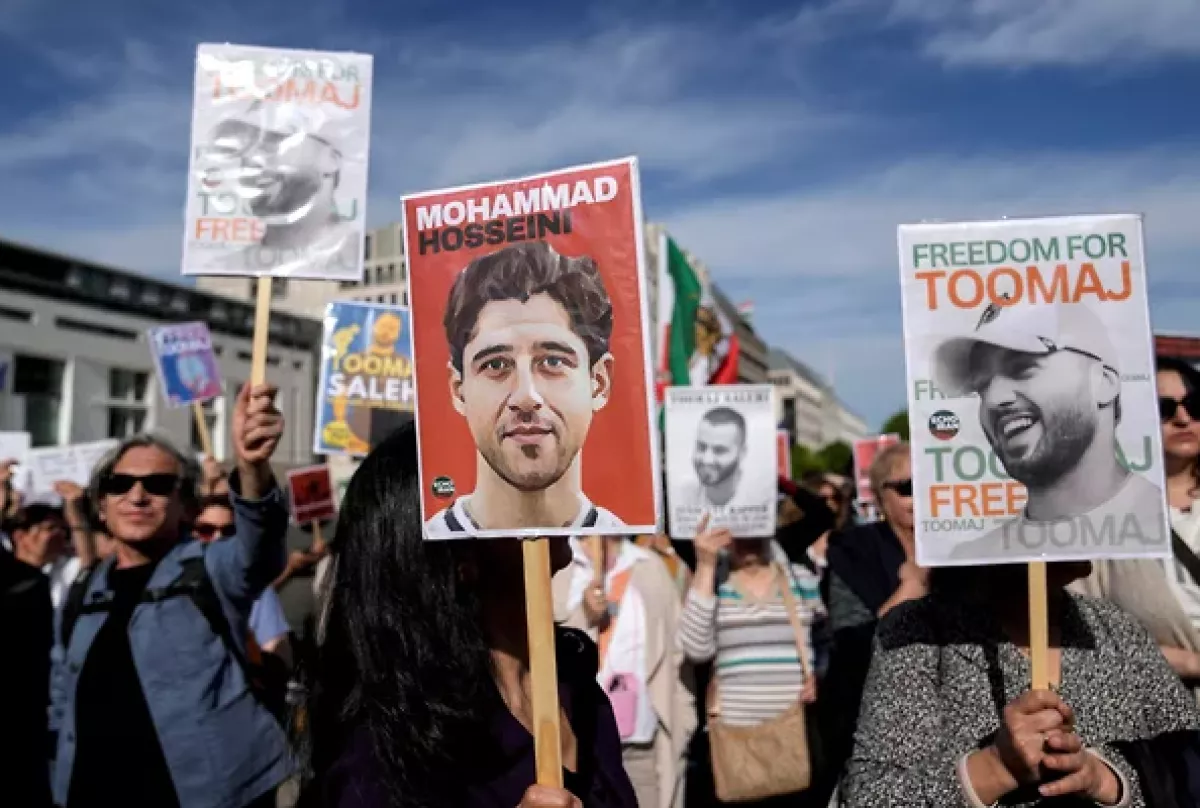Iranian rapper released from prison after death sentence overturned
The International Counsel Team has announced that Iranian rapper Toomaj Salehi, sentenced to death for supporting anti-government protests in 2022, was released from prison.
Known for his protest songs, Salehi spent 753 days in Isfahan prison, Caliber.Az reports via the message posted on the website of the International Counsel Team.

Over the past few years, Toomaj Salehi has been repeatedly arrested on charges of propaganda against the regime and insulting the highest leadership. In September 2021, he was sentenced to six months in prison and fined. He was also banned from performing at concerts.
Toomaj Salehi was arrested again in October 2022 after expressing his support for the large-scale protests in Iran that erupted following the death of 22-year-old Mahsa Amini, a young Kurdish woman. Salehi participated in these protests, urging Iranians to rise against the government and performing protest songs.
After his arrest, he was reportedly tortured and held in solitary confinement. In April 2024, an Isfahan court sentenced him to death, finding him guilty of spreading false information in cyberspace, disturbing public order, and inciting anti-government propaganda.
An international team of lawyers assisted Salehi and his family, submitting appeals and complaints to international bodies. In July, Iran's Supreme Court overturned the death sentence, but the rapper remained in prison to serve his previous sentences.
Salehi's release was hailed by his legal team and supporters as a moment for celebration, though they also emphasised the need to remain vigilant. They urged the world not to turn a blind eye to such cases.
Jina Mahsa Amini, a 22-year-old woman from the city of Saqqez in Iran's western Kurdistan province, was in Tehran when she was arrested by morality police over allegedly failing to observe the Islamic Republic's strict dress code by improperly wearing her hijab.
Her death in police custody was followed by widespread protests and an ensuing crackdown in which hundreds of people died, including dozens of security personnel.
Nine people have been executed in cases related to the protest movement involving killings and violence against security forces.
Covering the neck and head has been compulsory for women in Iran since 1983.
Iranian police in recent months have toughened controls on women who ignored the state-imposed dress code.
By Naila Huseynova








